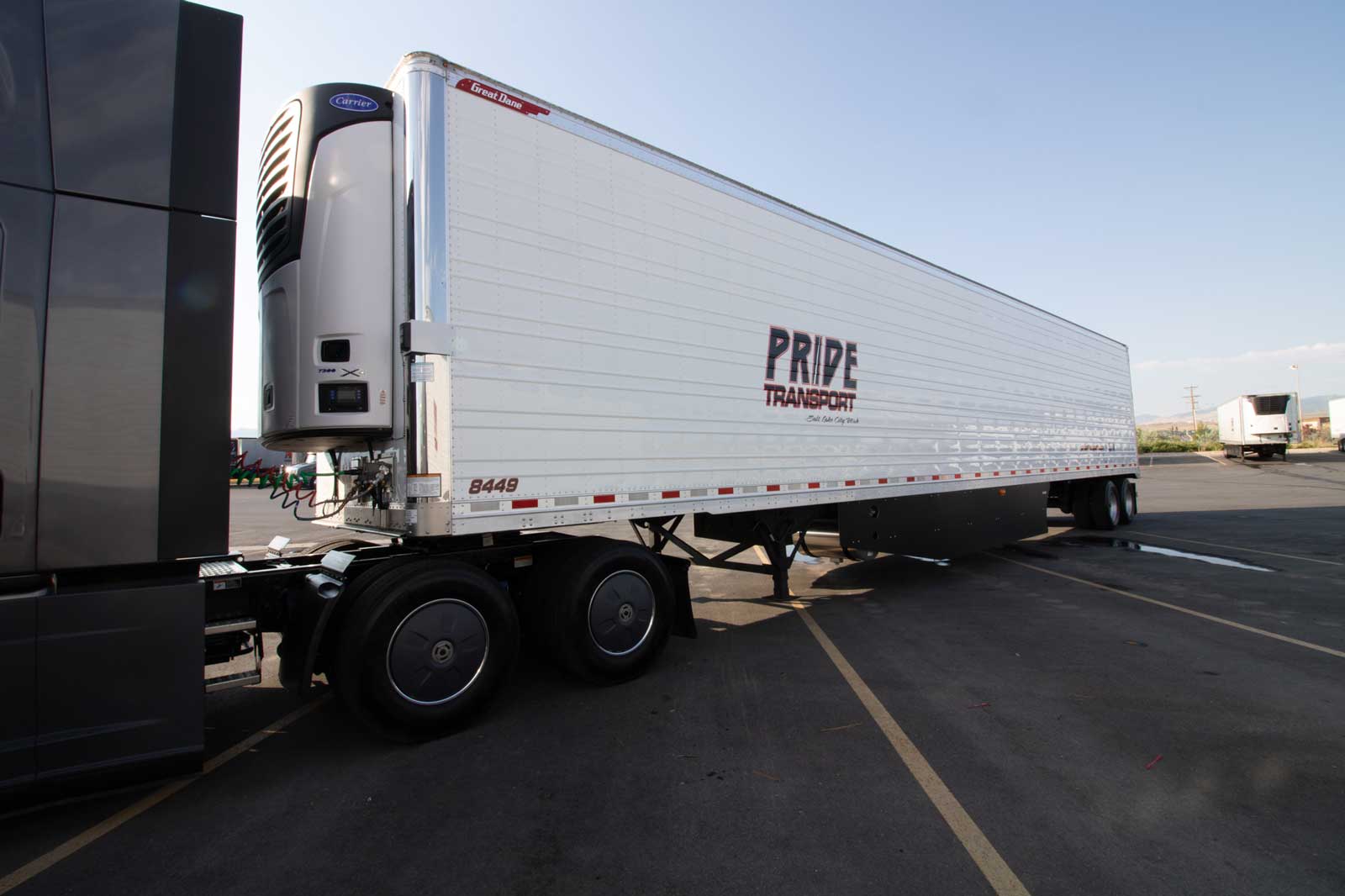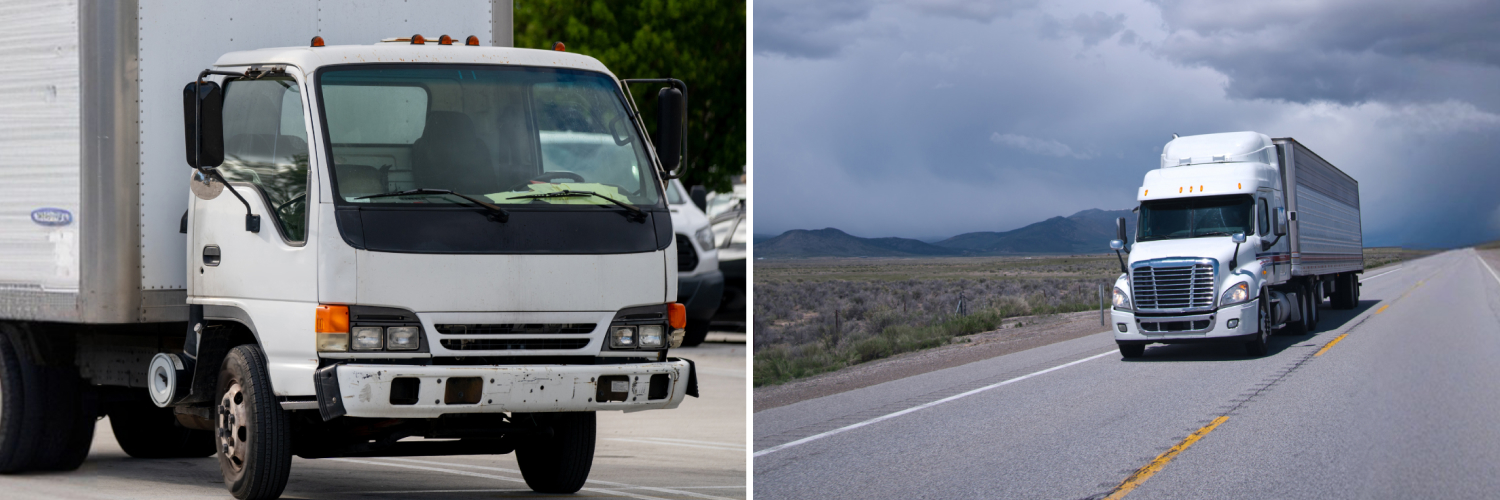Refrigerated Transportation Thermo King: The Ultimate Remedy
Refrigerated Transportation Thermo King: The Ultimate Remedy
Blog Article
Leading Developments in Transportation Refrigeration: Enhancing Performance and Security
The landscape of transport refrigeration is going through significant transformation, driven by technologies intended at boosting both effectiveness and security. As these innovations proceed to progress, it is necessary to discover their effects on functional practices and regulatory conformity, triggering a better assessment of exactly how they reshape the future of transport refrigeration.
Smart Temperature Keeping An Eye On Solutions
In the realm of transportation refrigeration, wise temperature monitoring systems have actually become a vital technology for ensuring the stability of temperature-sensitive products. These innovative systems leverage Web of Things (IoT) innovation to give real-time data on temperature level fluctuations, making it possible for drivers to keep optimal problems throughout the supply chain. By continually tracking the temperature level of cooled containers and lorries, firms can swiftly identify inconsistencies that might compromise product top quality.

Moreover, clever surveillance systems usually incorporate automated signals and notices, permitting stakeholders to respond promptly to any type of possible concerns. This positive technique not just minimizes the threat of perishing but likewise improves compliance with regulative criteria governing food security and pharmaceutical transportation.
The assimilation of information analytics within these systems likewise helps with anticipating upkeep, assisting drivers to visualize potential devices failures before they happen. This ability reduces downtime and enhances functional effectiveness, inevitably bring about cost savings.
Eco-Friendly Refrigerants
Smart temperature level monitoring systems play a vital function in maintaining item top quality, however the effectiveness of transportation refrigeration additionally depends upon the choice of cooling agents made use of. As ecological problems rise, the change in the direction of green cooling agents has actually ended up being crucial. Traditional refrigerants, such as hydrofluorocarbons (HFCs), are notorious for their high Global Warming Possible (GWP), adding significantly to environment adjustment. On the other hand, emerging alternatives like hydrocarbon-based cooling agents and hydrofluoroolefins (HFOs) present reduced GWP choices, offering both performance and sustainability.
These eco-friendly refrigerants not only reduce environmental impact however also line up with worldwide policies focused on phasing out damaging substances. Their fostering can cause enhanced power efficiency, eventually reducing operating expense for transportation refrigeration systems. The usage of all-natural cooling agents, such as ammonia and carbon dioxide, has gained grip due to their exceptional thermodynamic residential properties and reduced ecological footprint.
Spending in eco-friendly refrigerants is not merely a regulative compliance action; it represents a calculated choice that boosts brand online reputation and promotes client loyalty. thermo king truck refrigeration. By focusing on sustainable practices, companies can add to a greener future while guaranteeing the integrity of transported products
Advanced Insulation Materials
Making use of innovative insulation materials is important for enhancing transport refrigeration systems, as they significantly enhance energy performance and maintain consistent temperature control. Standard insulation techniques usually drop short in stopping thermal transfer, resulting in increased power usage and varying temperature levels within chilled areas.
Arising products such as vacuum shielded panels (VIPs) and aerogels supply premium thermal resistance, enabling thinner accounts without jeopardizing efficiency. VIPs, for example, utilize a vacuum layer to reduce conductive and convective heat transfer, making them excellent for space-constrained applications. Aerogels, recognized for their lightweight and permeable framework, give exceptional insulation while substantially reducing overall system weight.
Moreover, including phase modification materials (PCMs) into insulation thermo king truck refrigeration units systems can even more support temperatures throughout transit. These products soak up and release thermal power, successfully buffering against external temperature variants.
The integration of these innovative insulation materials not only lowers the operational expenses related to power usage however also extends the life span of temperature-sensitive items. As the transportation refrigeration industry proceeds to advance, the fostering of innovative insulation innovations will be essential in improving both performance and safety and security in chilled transportation.
Automated Path Optimization
The performance of transportation refrigeration systems is greatly enhanced through automated route optimization, which leverages real-time data and innovative formulas to determine the most effective paths for distribution. By examining different variables such as traffic patterns, weather, and delivery home windows, these systems can significantly minimize traveling time and fuel intake.
Automated path optimization lessens human error and subjective decision-making, which can lead to inefficiencies. This modern technology allows fleet supervisors to allocate sources better, making certain that refrigerated items maintain their called for temperature throughout the trip. By optimizing courses, business can also boost consumer contentment through prompt deliveries.
In addition, automated systems can adapt to unforeseen conditions, such as roadway closures or abrupt traffic spikes, permitting dynamic rerouting. This adaptability not only protects the integrity of temperature-sensitive items but likewise contributes to general functional effectiveness.
Carrying out automated course optimization can lead to substantial price financial savings while minimizing the carbon impact related to transport. As services significantly focus on sustainability, this advancement attracts attention as a critical part in contemporary transport refrigeration, lining up functional goals with ecological duty. Eventually, automated route optimization stands for a considerable advancement in the pursuit for performance and safety in transport refrigeration.

Real-Time Information Analytics
Automated path optimization substantially benefits from the combination of real-time data analytics, which provides crucial insights into the performance of transportation refrigeration systems. By using real-time data, transport drivers can monitor temperature changes and equipment performance, making certain that subject to spoiling products are preserved within needed criteria throughout transportation. This positive approach not only enhances the high quality of the transferred items but additionally minimizes the danger of wasting and loss.

Along with enhancing efficiency, real-time analytics enhances safety by ensuring conformity with regulatory criteria for temperature level control. This not only protects public health but likewise fortifies a company's credibility - thermo king transport refrigeration. As the transport refrigeration market evolves, the assimilation of real-time data analytics becomes a keystone for driving innovation, sustainability, and operational excellence
Final Thought
In conclusion, the improvements in transportation refrigeration significantly boost both efficiency and safety and security within the market. Smart temperature level monitoring systems and real-time information analytics provide critical oversight, while environmentally friendly refrigerants and progressed insulation products add to sustainability and energy effectiveness. Automated route optimization algorithms not only reduce traveling time however likewise reduce ecological impact. Collectively, these technologies represent a crucial advancement in transportation refrigeration, making certain conformity with regulative criteria and advertising a greener future.
The landscape of transportation refrigeration is undertaking considerable improvement, driven by innovations intended at improving both efficiency and safety and security.Smart temperature level surveillance systems play a vital function in preserving item quality, but the efficiency of transportation refrigeration also pivots on the selection of refrigerants made use of. Their adoption can lead to improved power efficiency, ultimately minimizing operating expenses for transport refrigeration systems. Inevitably, automated course optimization represents a substantial advancement in the mission for effectiveness and safety and security in transportation refrigeration.
In conclusion, the developments in transport refrigeration considerably boost both effectiveness and safety within the market.
Report this page